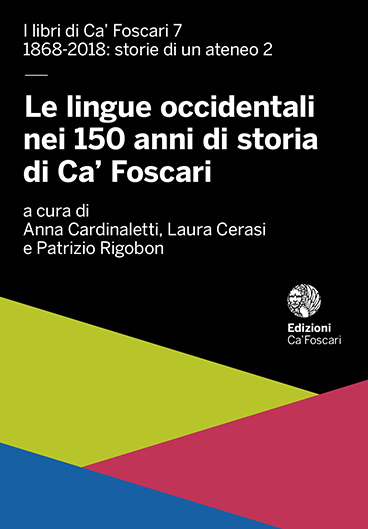- search 283 views
- file_download 14 download
- keyboard_capslock metadata
-
mark_email_readIscriviti alla newsletter
L’insegnamento dello spagnolo tra le due guerre e la nascita della facoltà di Lingue
abstract
Francisco Broch y Llop taught Spanish (language and for some years also literature) at the Venetian Institute of Economics for more than 30 years, from 1919 to 1954. Until 1937 there was no official teaching of Spanish literature. It was established by a national Act in 1938 and Alfredo Cavaliere was appointed to the chair. Four years later, in 1942, Giovanni Maria Bertini was the first Full Professor of Spanish Literature. He was the head of the Spanish Studies in Venice until 1954, when he left Venice to return to his home University. The study of the Spanish language was until recent years under the charge of the professor of Spanish literature, and thus language, as a subject, had no official citizenship until recent years. In 1954, after a very long process, which lasted for over 15 years with the Italian Ministry of Education, a brand new Faculty of Languages and Literatures was officially established, and Spanish Studies began to flourish at Ca’ Foscari.
Keywords: History of Spanish at the University of Venice • Alfredo Cavaliere • Giulio Bertoni • Francisco Broch y Llop • Giovanni Maria Bertini





